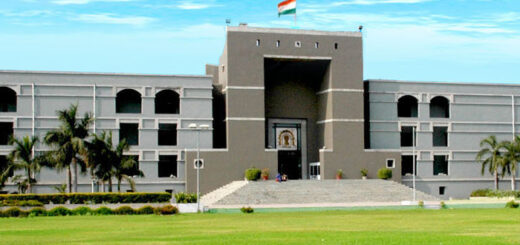The Supreme Court stated that there should be no changes to legal requirements and no ads for applications unless there is authority to relax the qualifications.

The Supreme Court stated that there should be no changes to the legal requirements or the advertisement for applications unless there is authority to relax the qualifications. This decision was made in Civil Appeals against the Karnataka High Court’s Division Bench regarding the appointment of the Chairperson of the National Commission for Homeopathy (NCH). The two-Judge Bench, including Justice Dipankar Datta and Justice Manmohan, emphasized that essential qualifications set by law must be strictly followed during the selection process, unless there is clear power to relax those qualifications. They also noted that if there are valid reasons for judicial review of administrative actions, then intervention is allowed, and it is not a situation where intervention is completely prohibited.
Senior Advocate Devadatt Kamath represented the Appellant, while Additional Solicitor General Vikramjeet Banerjee and Senior Advocate Devashish Bharuka represented the Respondents. A selection process that was blocked by the Writ Court was later overturned by the Writ Appellate Court based on the Government of India (Allocation of Business) Rules, 1961, established under Article 77 of the Indian Constitution. The National Commission for Homeopathy Act, 2020 (NCH Act) is a recent law. In 2021, the Ministry of AYUSH (Ayurveda, Yoga, Naturopathy, Unani, Siddha, and Homeopathy) announced a call for applications for the position of Chairperson of the Commission. The eligibility criteria stated that applicants must have at least 20 years of experience in homeopathy, including a minimum of 10 years as a Head of Department or Head of an Organization in healthcare delivery, development, or education in homeopathy.
A total of 37 candidates applied for the position, including the Appellant and the 3rd Respondent. After the Search Committee recommended a candidate, the Central Government appointed the Respondent as the first Chairperson of the Commission. His term was set for four years, meaning the Appellant would leave office on July 4, 2025. Dissatisfied with the selection and appointment, the Appellant filed a Writ Petition in the High Court, arguing that the Respondent did not meet the experience requirements of the NCH Act. The Single Judge agreed and canceled the Respondent’s appointment. However, the Division Bench reversed this decision and allowed Intra-Court Appeals, leading the Appellant to take the case to the Apex Court.
The Supreme Court observed that just because the Search Committee is led by the Cabinet Secretary and includes experts, it does not mean its recommendations are beyond judicial review. In cases that require such review, the Writ Court can justifiably intervene. The Court expressed concern over the lack of procedural fairness in this case. If the Search Committee had doubts about an applicant’s eligibility under the law, it should have documented its satisfaction in the minutes to show transparency. The Court stated that this should not be overlooked.
Additionally, the Court highlighted the importance of appointing the Chairperson of the Commission, as it impacts many stakeholders in homeopathy and relates to public employment under Article 16 of the Constitution, in conjunction with Article 14. The case revealed a serious failure to meet the requirements set out in Section 4 of the NCH Act and the job advertisement, necessitating intervention in the selection of the third respondent. The Division Bench criticized the Single Judge for suggesting that the Court’s ability to intervene in service matters is very limited and that intervention should only occur if there is evidence of bad faith.
The Court determined that appointing the 3rd Respondent as Chairperson, despite lacking the necessary experience, was legally flawed. It emphasized that any public office appointment must strictly follow the rules for eligibility, regardless of the position. Every public appointment under Article 16 of the Constitution should be fair, reasonable, and not arbitrary. The Court stated, “Fraud undermines everything. This Court is responsible for protecting citizens’ rights; allowing a proven fraud to persist is unacceptable as it contradicts both reason and morality. We find Mr. Banerjee’s appeal to our conscience unconvincing.” As a result, the Apex Court upheld the Appeals against the Division Bench’s ruling, reinstated the Single Judge’s decision, annulled the Respondent’s appointment, and dismissed the Appeal regarding the rejection of the Appellant’s cross-objection.
Cause Title: Dr. Amaragouda L. Patil v. Union of India & Ors. (Neutral Citation: 2025 INSC 201)
Appearance:
Appellant: Senior Advocate Devadatt Kamath, Advocates Nishanth Patil, MV Mukunda, Ayush P Shah, Revanta Solanki, Hruday Bajentri, Arijit Dey, and Mehul Kumar Garg.
Respondents: ASG Vikramjeet Banerjee, Senior Advocate Devashish Bharuka, AORs Vanya Gupta, Gurmeet Singh Makker, Advocates Parmod Kumar Vishnoi, Avnish Dave, Kumar Prashant, Raghav Sharma, Sanjeevani Shandilya, Vaibhav Dviwedi, Shreyas Balaji, and Shivendra Singh.








